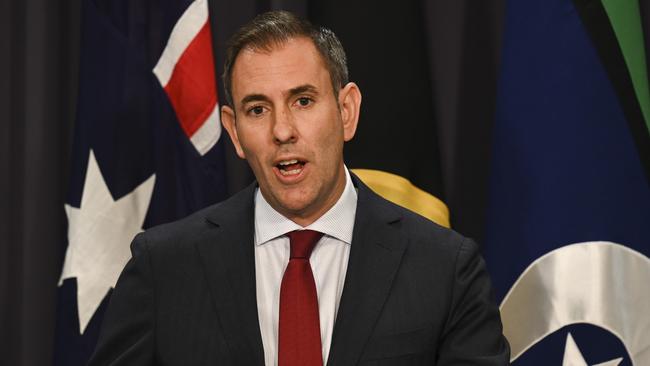
It’s one thing to sting retirees with $3m in their super accounts, it’s another thing altogether to raise the prospects of cutbacks for pensioners.
With the budget looming on May 9 Chalmers has rattled seniors groups in openly pondering whether the current deeming rate accurately reflects economic conditions.
Asked directly on deeming rate settings he refused to rule out future changes, suggesting: “We haven’t concluded a view or announced a view on future movements in the deeming rate except … it should broadly reflect movements in the cash rate.”
Applying those principles the deeming rate now looks too low. It has two bands – the lower rate is 0.25 per cent (up to $56,400 for singles) and the higher rate is 2.25 per cent: both rates are significantly below the effective benchmark for deeming – the cash rate – which is at 3.6 per cent.

Wayne Strandquist, the president of the Association of independent Retirees, says: “You must remember that there have also been times where the deeming rate was considerably higher than the cash rate and retirees were being penalised … it depends on the cycle. But it’s only a matter of time before they raise the deeming rate, they need the revenue.”
Certainly, the government will need to address its deeming dilemma very soon.
First, it must clarify if the rate will remain unchanged going forward, and second, it must clarify if the rate will be indexed on July 1 this year: under industry calculations it should rise by about 5 per cent off the back of this year’s inflation readings.
In fact, logic might suggest if the deeming rate is lower than most term deposit rates in the market, it would be a feasible move by the Treasurer to change deeming arrangements.
Except for one small problem: In the heat of the election campaign when the ALP was matching just about every new idea from the Coalition, the ALP also matched the Morrison regime’s promise of a generously lengthy deeming “freeze”.
A statement from the Social Services Minister Amanda Rishworth in February 2022 announced how the new government would deliver on its commitment to the two-year moratorium on deeming changes and for good measure added that deeming “will be indexed on every July 1”.
Tony Negline, super and financial services lead at Chartered Accountants ANZ, says: ‘‘They have baked it in, so it will be very difficult to go back to that subject so soon. I would be most surprised if they did.”
Without breaking an election promise, the soonest the government could lift the deeming rate would be July 1, 2024. Though the announcement of any lift could be made well before that time: For example, the move to double taxes for wealthy super savers – the non-indexed extra 15 per cent tax rate on amounts over $3m – does not have a start date until July 1, 2025.
There is also the possibility the government could move to delay the indexation due on July 1 by sealing a deal in parliament.
In reality the deeming rate has not been linked to the cash rate for years since former treasurer Josh Frydenberg introduced an easing of conditions in July 2019.
In a surprise move the Morrison government then cut deeming rates further and announced a two-year freeze in May 2022. Even then it was clear rising rates would mean that deeming rates were artificially low.
Having said that, nobody could have guessed the RBA was going to raise rates a total of 10 times when it was still indicating rates would remain unchanged at the time.







Treasurer Jim Chalmers has a dilemma on his hands when it comes to the deeming rate – that’s the government’s assumed return on investments which determines whether around half a million Australians get access to the pension or not.